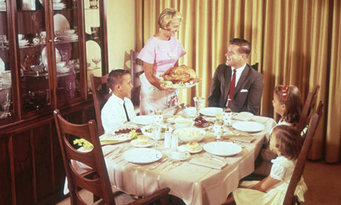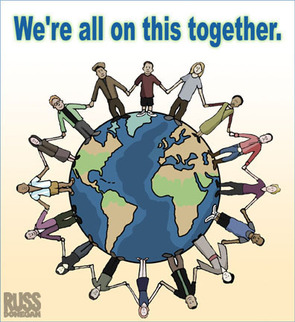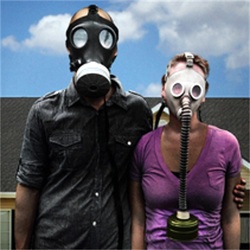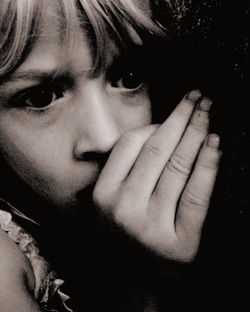
Nineteen sixty-two was a time of national paranoia. The Cuban Missile Crisis had brought the Cold War tensions to a boiling point, and the spector of nuclear war appeared immanent. It was the era of bomb shelters and practice drills with children hiding under their desks to avoid fallout.
My family lived in the suburbs, and my father was an attorney. He was, as usual, declaring intentions and giving orders. Specifically, he was going to buy a generator and he wanted my mother to begin to stockpile canned goods. He wanted to make sure that his family would survive.

My father, for once, had nothing to say. The subject was dropped, and I remember feeling a rush of gratitude for the sense of sanity and safety that accompanied my mother’s perspective.

"Nancy had a survivalist philosophy which is why she was stockpiling guns. She had them for defense. She was stockpiling food. She grew up on a farm in New Hampshire. She was skilled with guns. We talked about preppers and preparing for the economy collapsing…”
She had a collection of guns and according to some reports, would take her sons target shooting. Three of the guns from her collection were found at the scene of the shootings.
Many things are being written about factors contributing to this massacre. The murderer had a prior history of mental health issues, which appear to have been inadequately addressed. He was a gamer, and there have been studies linking violent video games with the acting-out of violence. And, of course, there was the easy access to assault weapons, and the glorification of and desensitization to male violence that is a staple in our culture.

An adult might experience a sense of reassurance and mastery from strategies of dominance and hoarding in the face of an imagined national catastrophe, but a child or someone with mental health challenges might not feel so secure in these “preparations.” In fact, revisiting the conversation of that night, I remember an overwhelming loss of bearing which was dangerously close to an existential crisis.
We know from studies of suicide, that one of the biggest motivators for self-destruction is a loss of a sense of identity, or self. Folks who jumped off buildings during the Depression were less motivated by the loss of their wealth than they were by the existential terror of not knowing who they were or who they would be without their wealth. Losing one’s orientation to others can constitute a tremendous assault on one’s identity. Ask any incest survivor whose family has denied her experience.

How could a child or a disturbed adult cope with an environment suffused with this end-of-the-world mindset? Were these measures generating the very anxiety they were meant to control? How does one wait calmly for something so horrendous? And was this young man less confident in his ability to survive than his mother? Was he experiencing relationships as potential liabilities in a post-apocalyptic world?
My own brief brush with survivalism is etched indelibly in memory, and with it is one of the only good memories I have of my mother. I have blogged on the potentially devastating effects on children of being taught to believe in hell, and today I am aware that it may be even more devastating to teach children to live in anticipation of the immanent arrival of this hell on earth. In fact, today it seems possible that preparing for Doomsday may become a self-fulfilling prophecy.

 RSS Feed
RSS Feed
